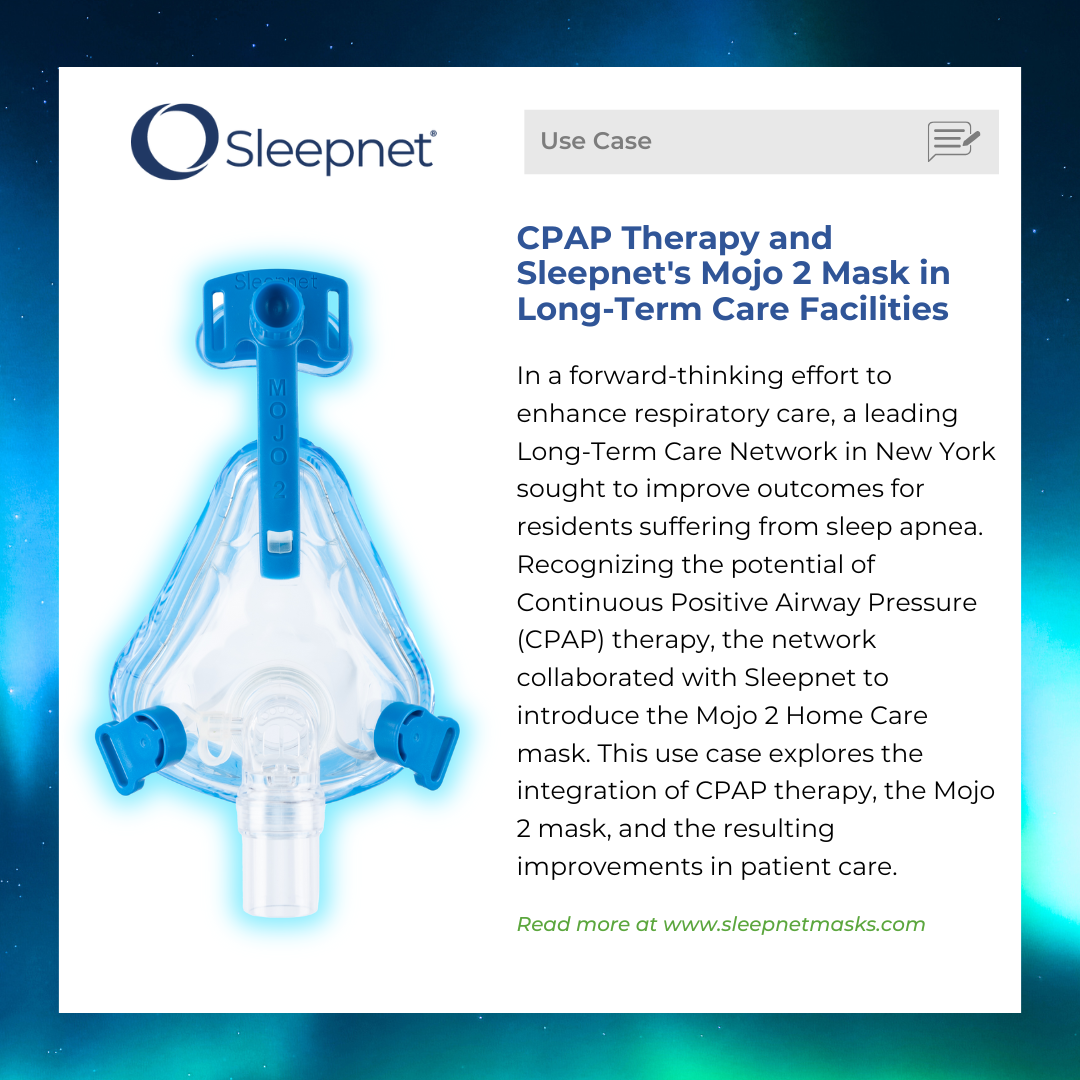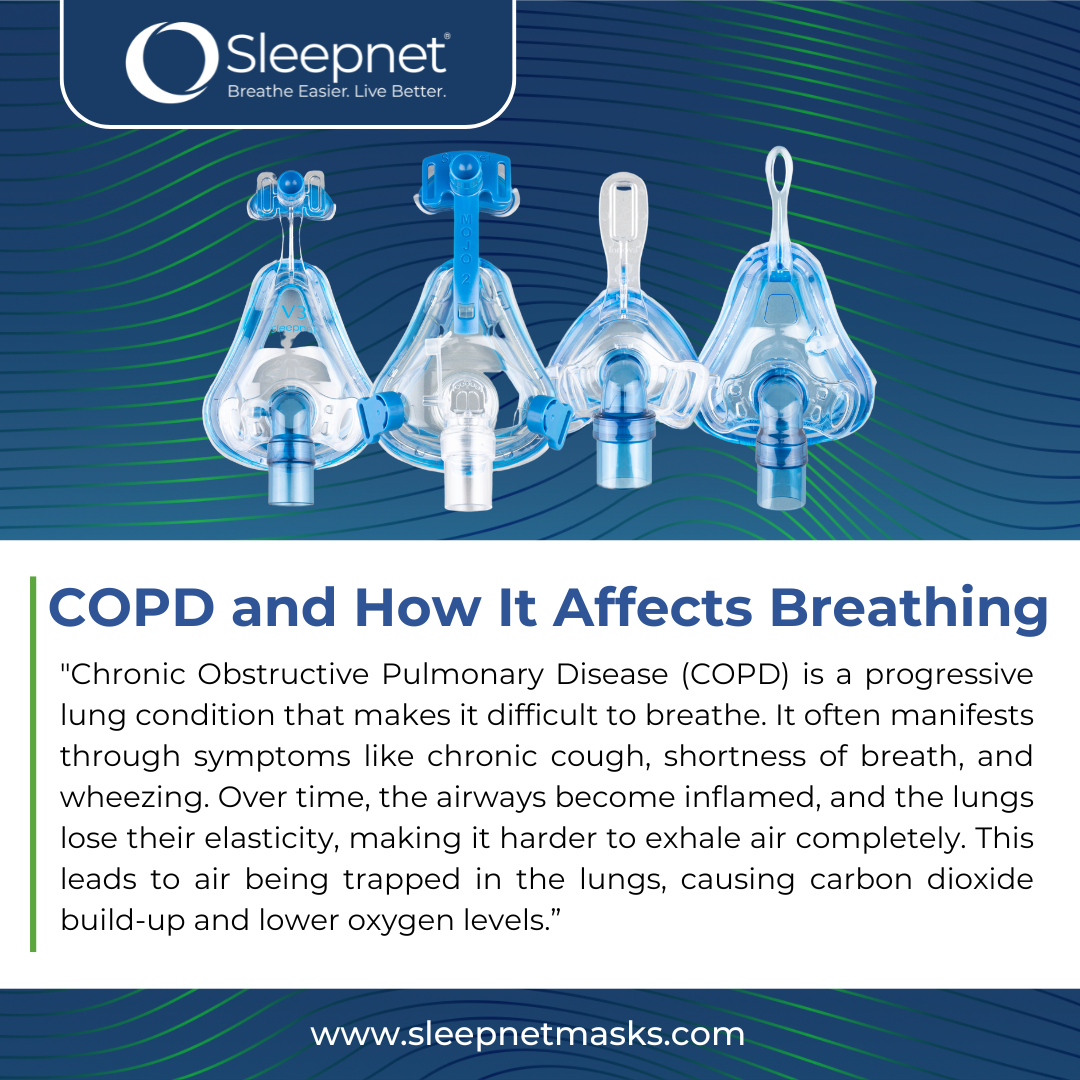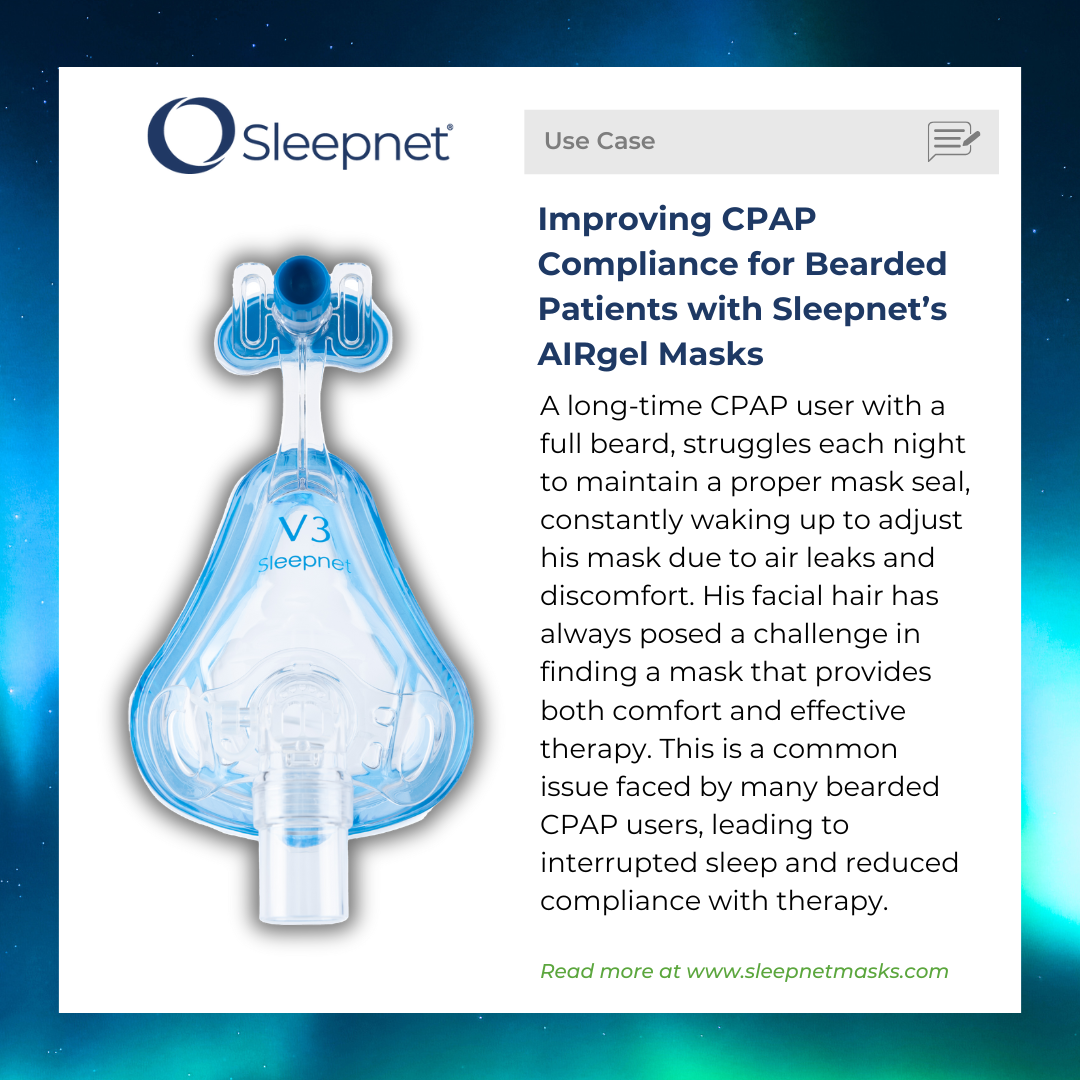CPAP Therapy and Sleepnet’s Mojo 2 Mask in Long-Term Care Facilities
Introduction
In a forward-thinking effort to enhance respiratory care, a leading Long-Term Care Network in New York sought to improve outcomes for residents suffering from sleep apnea. Recognizing the potential of Continuous Positive Airway Pressure (CPAP) therapy, the network collaborated with Sleepnet to introduce the Mojo 2 Home Care mask. This use case explores the integration of CPAP therapy, the Mojo 2 mask, and the resulting improvements in patient care.
Background
Sleep apnea presents complex respiratory challenges that severely impact patients’ quality of life, particularly in long-term care (LTC) facilities where residents are at a higher risk due to age and comorbidities. CPAP therapy is a vital tool in treating sleep apnea by keeping the airway open during sleep. However, some masks lack comfort and performance, leading to reduced compliance and less effective treatment. Recognizing that no single mask suits every patient, providing a variety of mask options allows nurses to better cater to individual needs and enhance patient outcomes.
Skin breakdown, including dermatitis, redness, and sores, is a common issue among long-term care (LTC) residents using CPAP masks, contributing to the staggering $26.8 billion the U.S. spends annually on treating pressure ulcers (Healthcare Finance 2019, “Pressure Ulcers cost the health system $26.8 billion a year”). This figure includes all types of skin ulcers, not just those on the face. Factors such as overly tight straps, ill-fitting masks, and poor maintenance often lead to skin irritation. Additionally, moisture buildup and friction between the mask and skin can worsen these conditions, resulting in discomfort and decreased adherence to therapy. LTC residents are particularly at risk due to prolonged mask use and potential skin vulnerability. Healthcare providers must regularly monitor for CPAP-related skin issues and adjust treatment to promote comfort and improve therapy compliance (PubMed 2019, “Long-term management of obstructive sleep apnea and its comorbidities”).
The Challenge
The Long-Term Care Network faced several key challenges in implementing effective CPAP therapy for residents:
- Risks of Skin Complications and Pressure Ulcers: The prolonged use of CPAP masks increases the risk of skin complications, including the development of pressure ulcers. These complications can escalate without proper intervention, leading to increased treatment costs and patient discomfort.
- Comfort and Compliance: Some masks were uncomfortable, leading to low patient adherence to CPAP therapy, which is crucial for managing sleep apnea symptoms.
- Effective Therapy Delivery: Poor mask fit on some patients resulted in air leaks, reducing the efficacy of CPAP therapy and failing to adequately support patients’ breathing needs.
- Complexity and Usability: Masks that were difficult to assemble and adjust increased the workload for caregivers and risked improper use, further diminishing therapy effectiveness.
The Solution
To address these challenges, the facility introduced Sleepnet’s Mojo 2 Home Care mask as part of their CPAP therapy program. The Mojo 2 mask offered several distinctive features designed to enhance patient comfort and therapy efficacy:
- Custom Fit Technology: Ensures a secure and personalized fit that accommodates various facial structures, crucial for minimizing air leaks and maximizing CPAP therapy effectiveness.
- AIRgel Technology: The soft, flexible gel material reduces pressure points, skin irritation, and the risk of skin ulcers, making it ideal for prolonged use by elderly patients.
- User-Friendly Design: The ergonomic and robust design simplifies assembly and fitting, allowing caregivers to focus more on patient care and less on equipment management.
Implementation
The implementation of the Mojo 2 mask within the CPAP therapy program involved several strategic steps:
- Comprehensive Training: Sleepnet facilitated in-depth training sessions for respiratory therapists, nurses, and caregivers. They covered integrating CPAP therapy, ensuring proper mask fitting, and effectively monitoring patients.
- Pilot Program Deployment: A pilot study was conducted to assess the Mojo 2 mask’s performance, focusing on residents with sleep apnea.
- Ongoing Monitoring and Analysis: Data related to patient comfort, therapy compliance, and respiratory outcomes were gathered and regularly analyzed to ensure the highest standards of care were being met throughout the program.
Results
The introduction of the Mojo 2 mask for CPAP therapy yielded significant improvements:
- Higher Patient Compliance: With the integration of Sleepnet’s AIRgel technology, comfort and mask fit were greatly improved, leading to fewer instances of skin irritation. This resulted in higher patient adherence to CPAP therapy and more effective management of sleep apnea symptoms.
- Enhanced Respiratory Outcomes: Patients experienced better oxygenation, contributing to improved overall health and quality of life.
- Positive Staff Feedback: Healthcare providers praised the mask for its ease of use and dependable performance, which streamlined caregiving tasks and enhanced patient care efficiency.
Conclusion
Working with Sleepnet Corporation demonstrates the importance that modern CPAP therapy solutions can play in improving patient outcomes in a Long-Term Care Facility. By addressing key challenges associated with sleep apnea, the Mojo 2 mask has elevated both comfort and compliance, emphasizing the importance of ongoing innovation in long-term care settings.
*This article does not disclose or publish identifying customer information.



